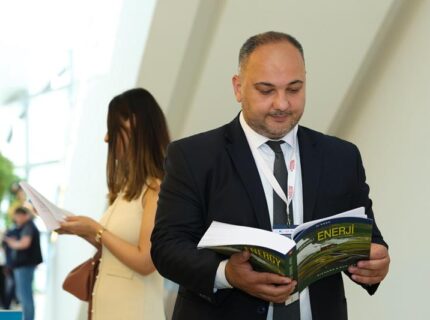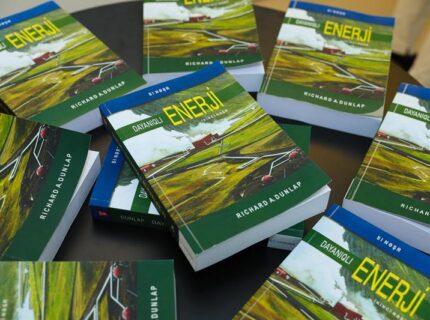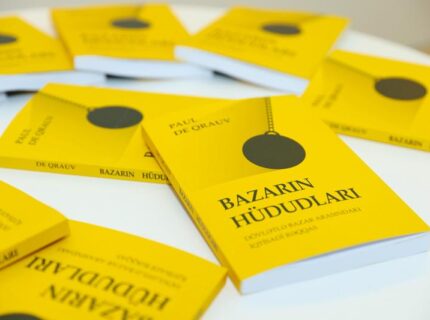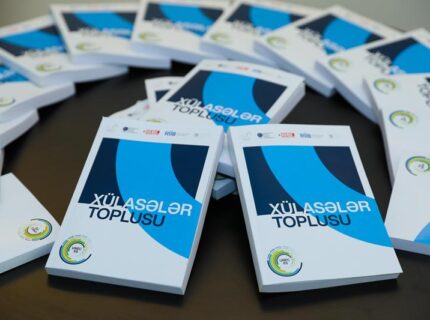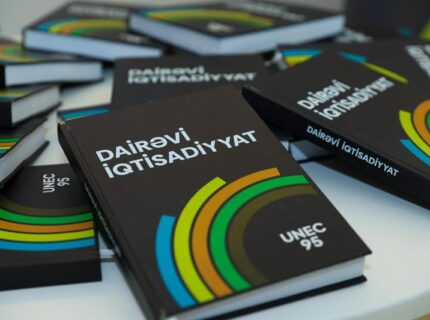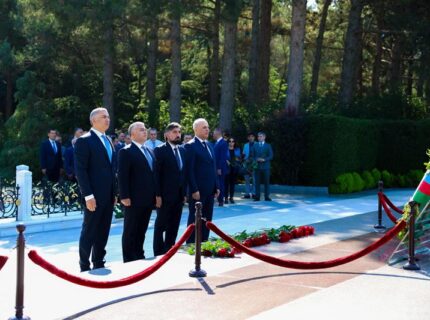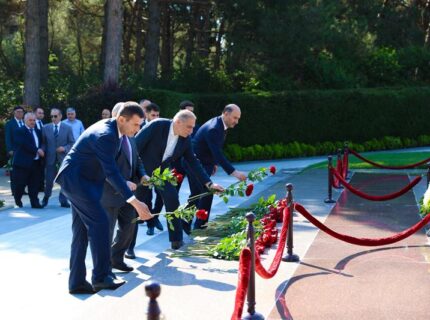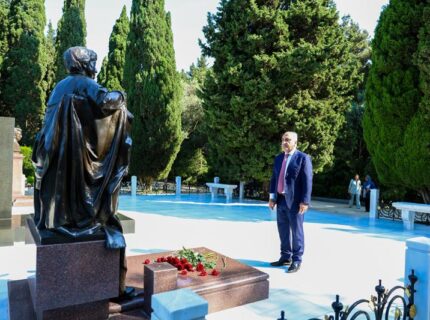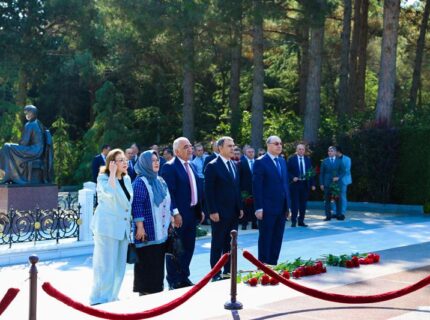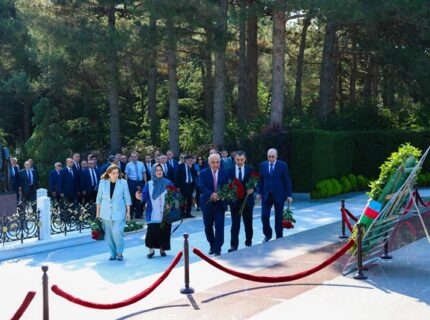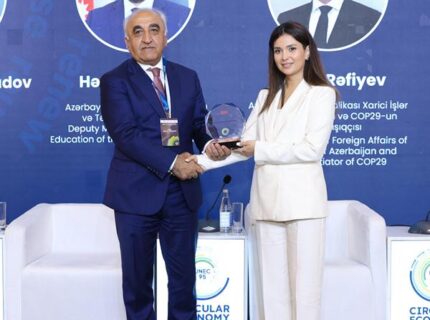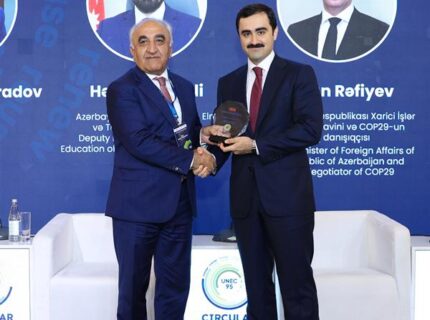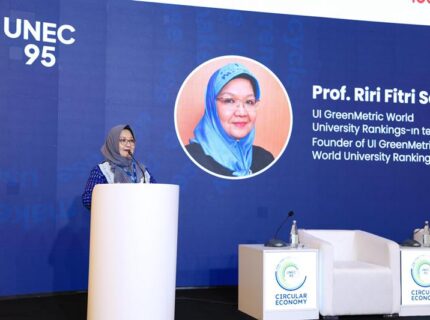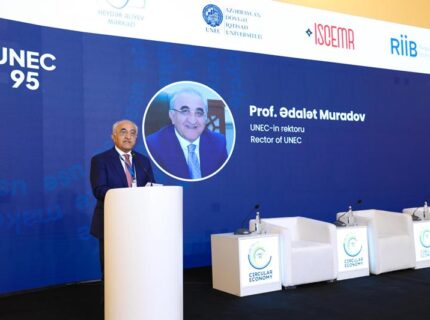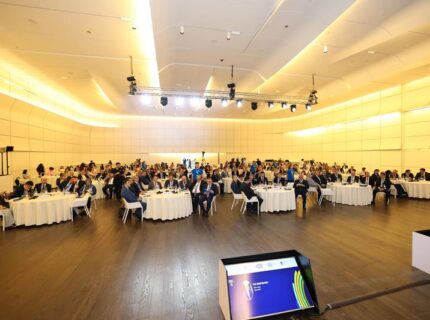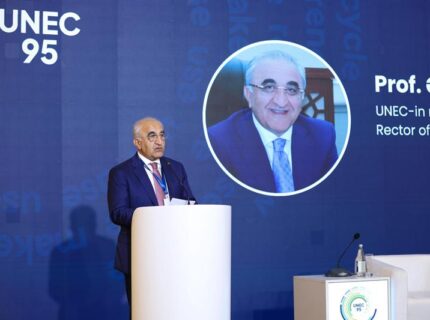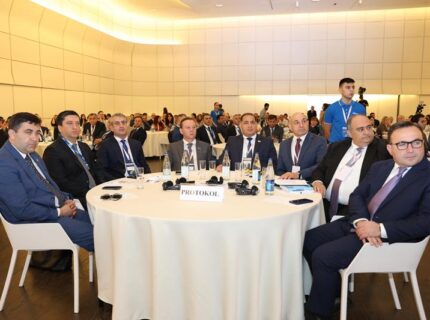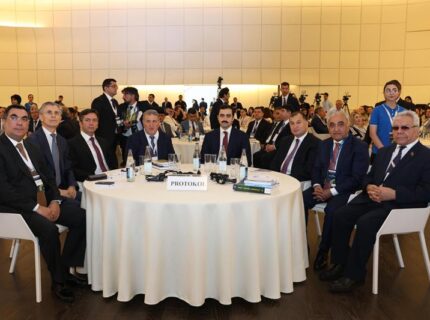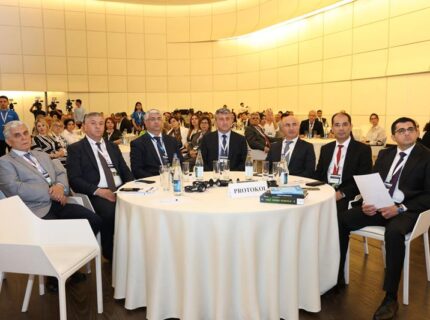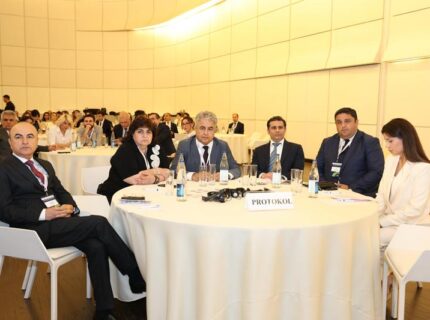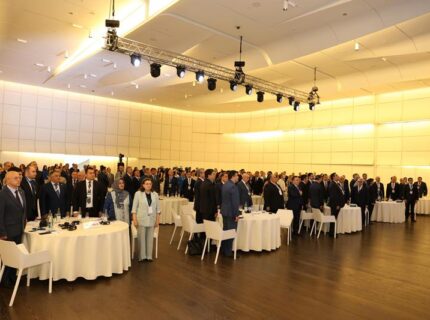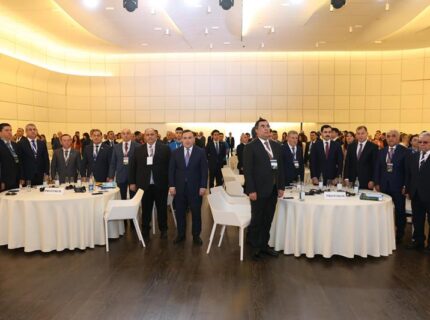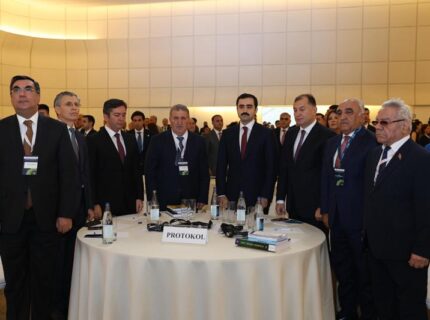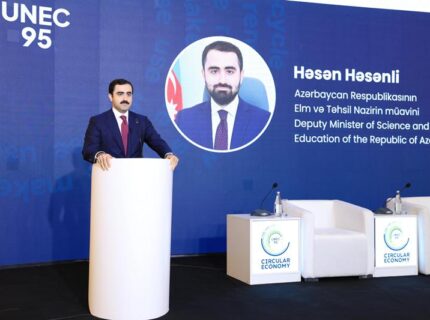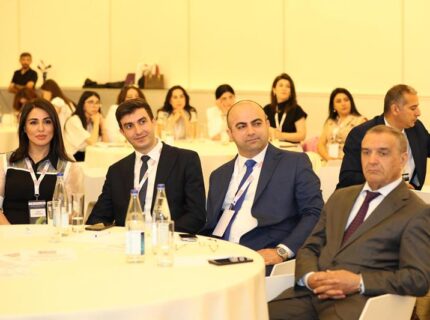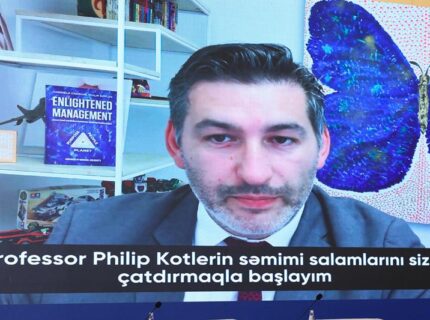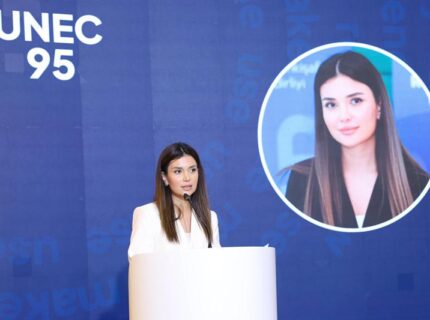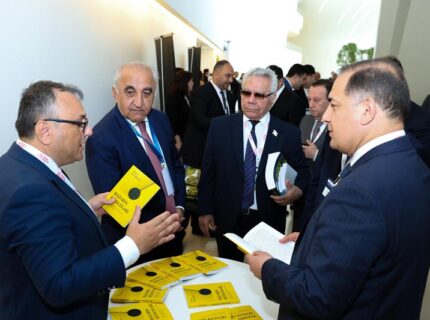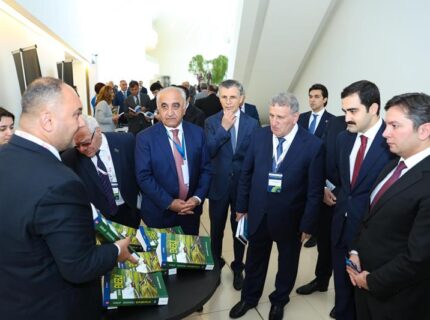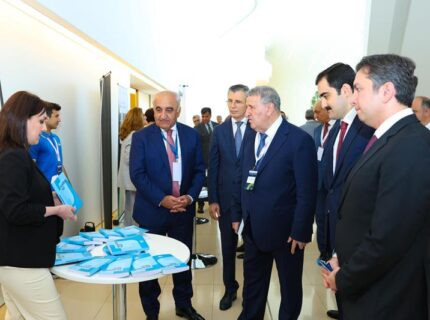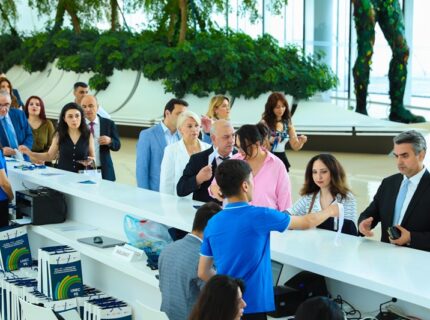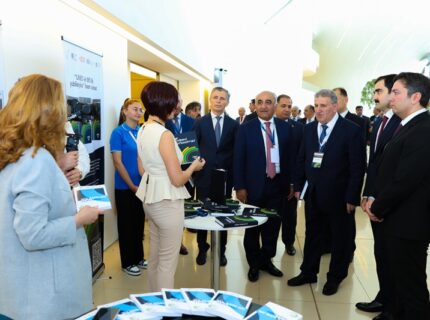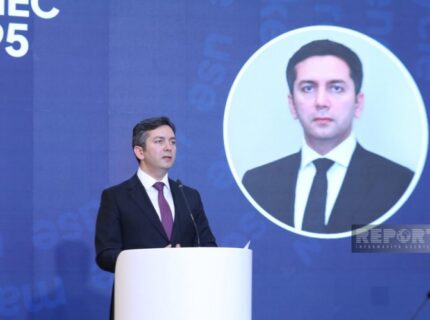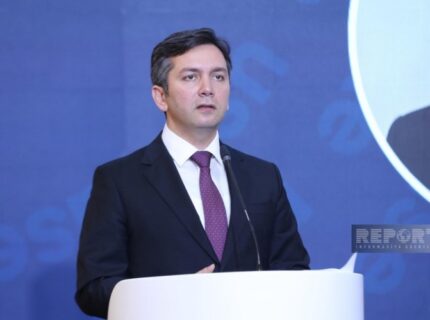The 7th International Scientific Conference of Researchers in the Field of Economics and Management (ISCEMR-2025) is underway
On June 12, the 7th International Scientific Conference of Researchers in the Field of Economics and Management (ISCEMR-2025) commenced.
Organized by the Azerbaijan State University of Economics (UNEC), the Heydar Aliyev Center, the International Center for Master’s and Doctoral Studies, the “Regional Development” Public Union, and sponsored by Pasha Holding Group, the conference will run until June 14. This year’s conference, dedicated to the 95th anniversary of UNEC, is focused on the theme “Circular economy and a sustainable ecosystem.”
At the start of the event, participants visited the Alley of Honor to pay tribute to National Leader Heydar Aliyev by laying flowers at his grave and honoring his memory with deep respect.
The opening ceremony, held at the Heydar Aliyev Center, featured addresses by UNEC rector professor Adalat Muradov, deputy minister of science and education Hasan Hasanli, deputy minister of foreign affairs and chief negotiator for COP29 Yalchin Rafiyev, founder of the UI GreenMetric World University Rankings professor Riri Fitri Sari, head of the international cooperation department of the “Regional Development” Public Union Gulbaghda Leysanova, and co-founder of “Weevo Srl Benefit” Gabriele Carboni.
In his speech, rector Adalat Muradov stated that 57 foreign researchers from 24 countries are participating in this year’s conference. He noted that 224 scientific articles were selected from the submissions and included in the abstract book presented during the conference. The rector also spoke about UNEC’s strategic objectives and emphasized the university’s determined progress toward those goals. He shared statistical data regarding UNEC’s scientific activity.
Muradov highlighted that the “Artificial intelligence strategy of the Republic of Azerbaijan for 2025–2028,” approved by the President of the Republic of Azerbaijan, contains significant directives related to the application of artificial intelligence in education and science. He spoke about ongoing projects in this field, particularly noting that a scientific digitalization project was launched at UNEC in the second half of 2024. “This system will support the digital management, financing, and incentivization of scientific activity. Our aim is to gather research outputs on a unified platform and ensure full transparency,” he said.
The rector added that the digital platform will integrate several key functions. Along with enabling effective and transparent management of scientific activity, it will also automatically collect data on publications, citations, grants, and other scholarly outputs, thus facilitating annual performance evaluations.
Deputy minister of science and education Hasan Hasanli emphasized the key objectives of higher education, stating that progress in international rankings is among them. He underlined the importance of a systematic and comprehensive approach in achieving this goal: “We are confident that through a structured approach, we will achieve internationally competitive results in education and scientific activities in the near future. The role of researchers in this process is undeniable.” He noted the significant relevance of the ongoing conference in this context.
Deputy minister of foreign affairs and COP29 chief negotiator Yalchin Rafiyev spoke about the successful outcomes of COP29 and Azerbaijan’s contributions to the event. Drawing attention to the relevance of the conference theme, he noted that three of the fourteen initiatives proposed at COP29 relate to energy and emphasized that the topics covered by the conference align with those initiatives. Rafiyev expressed confidence that the ideas discussed during the conference would contribute meaningfully to the country’s sustainable and long-term development.
Professor Riri Fitri Sari, founder of the UI GreenMetric World University Rankings, stated that since its establishment in 2010, the ranking has played an important role in evaluating universities’ environmental sustainability and green initiatives. She highlighted that UI GreenMetric is not only a platform for competition but also an essential space for inter-university cooperation and exchange of experience. “The aim is to encourage higher education institutions to act in accordance with the principles of sustainable development,” she said. Drawing attention to the progress made by Azerbaijani universities in this area, the founder noted that the programs presented by Azerbaijan within the COP29 framework have been highly appreciated internationally. She emphasized the importance of fostering a collaborative environment among university leadership, academic staff, and students, stating that this is crucial for ensuring balanced development across people, the planet, and economic benefit.
Following the speeches, Gulbaghda Leysanova, head of the international cooperation department of the “Regional Development” Public Union, and Gabriele Carboni, co-founder of “Weevo Srl Benefit,” delivered presentations on the conference theme.
Afterwards, participants visited an exhibition of books published within the framework of the conference.
In the second part of the conference, panel sessions were held on the topics “Azerbaijan’s contribution to COP29: Climate change and financing, efficient use of resources” and “Drivers of the circular economy: Digital transformation and a sustainable ecosystem.” The first panel focused on Azerbaijan’s position in the fight against climate change and financial mechanisms in the context of COP29. The second panel addressed the main drivers of circular economy development and included discussions on digital technologies, innovation, and environmental sustainability.
The conference will continue on June 13–14 with panel discussions and workshops. These will be dedicated to topics such as artificial intelligence, optimization of economic systems, gender equality and social inclusion in the circular economy, socially responsible and sustainable business models, the role of education in promoting the circular economy, consumer awareness and sustainable product selection, eco-innovations, green technologies, and sustainable consumption and production (SCP) policies.
